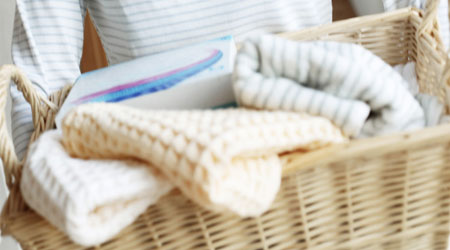How does the division of household work (like cooking, cleaning and laundry) affect a relationship? According to a University of Southern California study published in the
Journal of Family Psychology (2011), for dual wage earners with at least one child, the spouse who does most of the housework at the end of the day experiences higher levels of the stress hormone cortisol. Normally cortisol is highest in the morning when we need to get going and lowest at night; chronic spikes of cortisol can negatively affect weight, cognitive functioning and immunity. Says Darby Saxby lead author of the study, “The quality of relationships makes a big difference in a person’s health. Dividing up your housework fairly with your partner may be as important as eating your vegetables.” For further reading:
Time spent in housework and leisure: Links with parents’ physiological recovery from work (journal article abstract)
Study Examines Stress Levels for Couples
Irreconcilable differences at the end of the day: Men, women and housework




